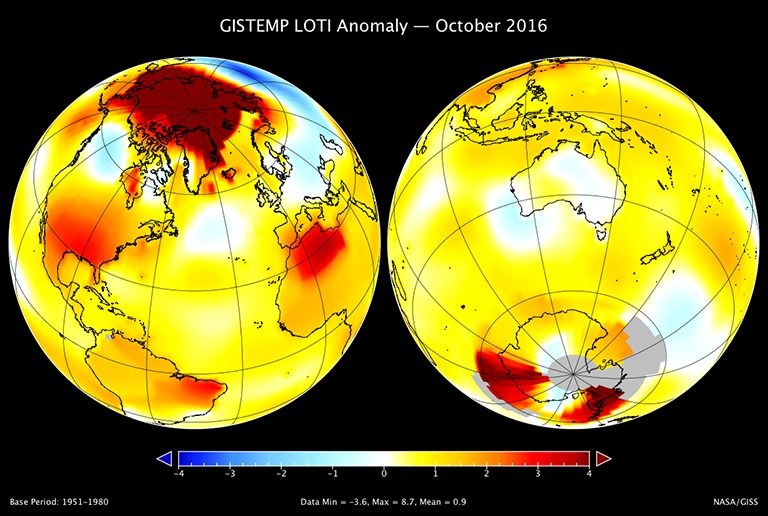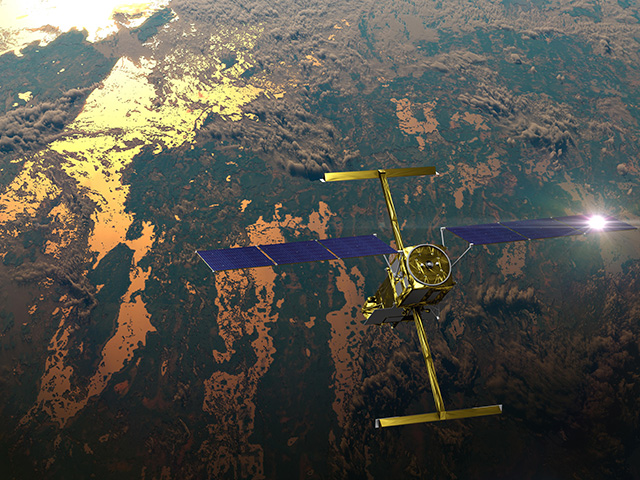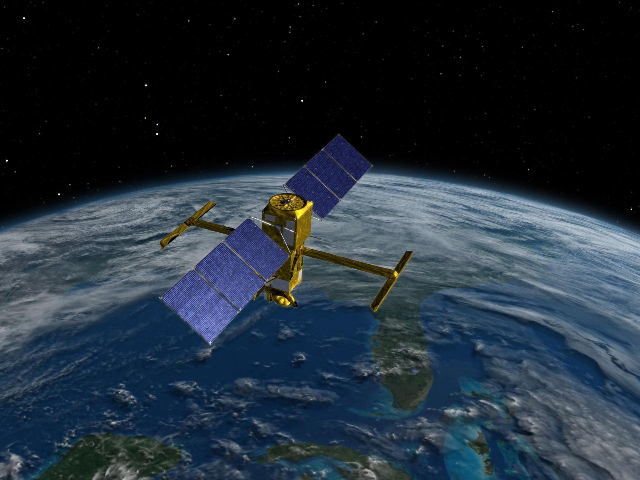News | November 17, 2016
The last three Octobers are the warmest on record

A map of the October 2016 LOTI (land-ocean temperature index) anomaly, showing that the Arctic region was much warmer than average. The United States and North Africa were also relatively warm. The largest area of cooler temperatures stretched across Russia.
October 2016 was the second warmest October in 136 years of modern record-keeping, according to a monthly analysis of global temperatures by scientists at NASA's Goddard Institute for Space Studies (GISS) in New York.
October 2016's temperature was 0.18 degrees Celsius cooler than the warmest October in 2015. Last month was 0.89 degrees Celsius warmer than the mean October temperature from 1951-1980.
The top three October temperature anomalies have been the past three years. 2015 was the hottest on record, 1.07 degrees Celsius warmer than the October mean temperature, followed by 2016 and 2014. The top 10 October temperature anomalies all have occurred since 2000.
“We continue to stress that long-term trends are the important thing, much more so than monthly rankings,” said GISS director Gavin Schmidt.
The monthly analysis by the GISS team is assembled from publicly available data acquired by about 6,300 meteorological stations around the world, ship- and buoy-based instruments measuring sea surface temperature, and Antarctic research stations.
The modern global temperature record begins around 1880 because previous observations didn't cover enough of the planet. Monthly analyses are sometimes updated when additional data becomes available, and the results are subject to change.
Related links
For more information on NASA GISS's monthly temperature analysis, visit data.giss.nasa.gov/gistemp.
For more information about NASA GISS, visit www.giss.nasa.gov.
Media contacts
Michael Cabbage
NASA's Goddard Institute for Space Studies, New York, N.Y.
212-678-5516
mcabbage@nasa.gov
Leslie McCarthy
NASA's Goddard Institute for Space Studies, New York, N.Y.
212-678-5507
leslie.m.mccarthy@nasa.gov





